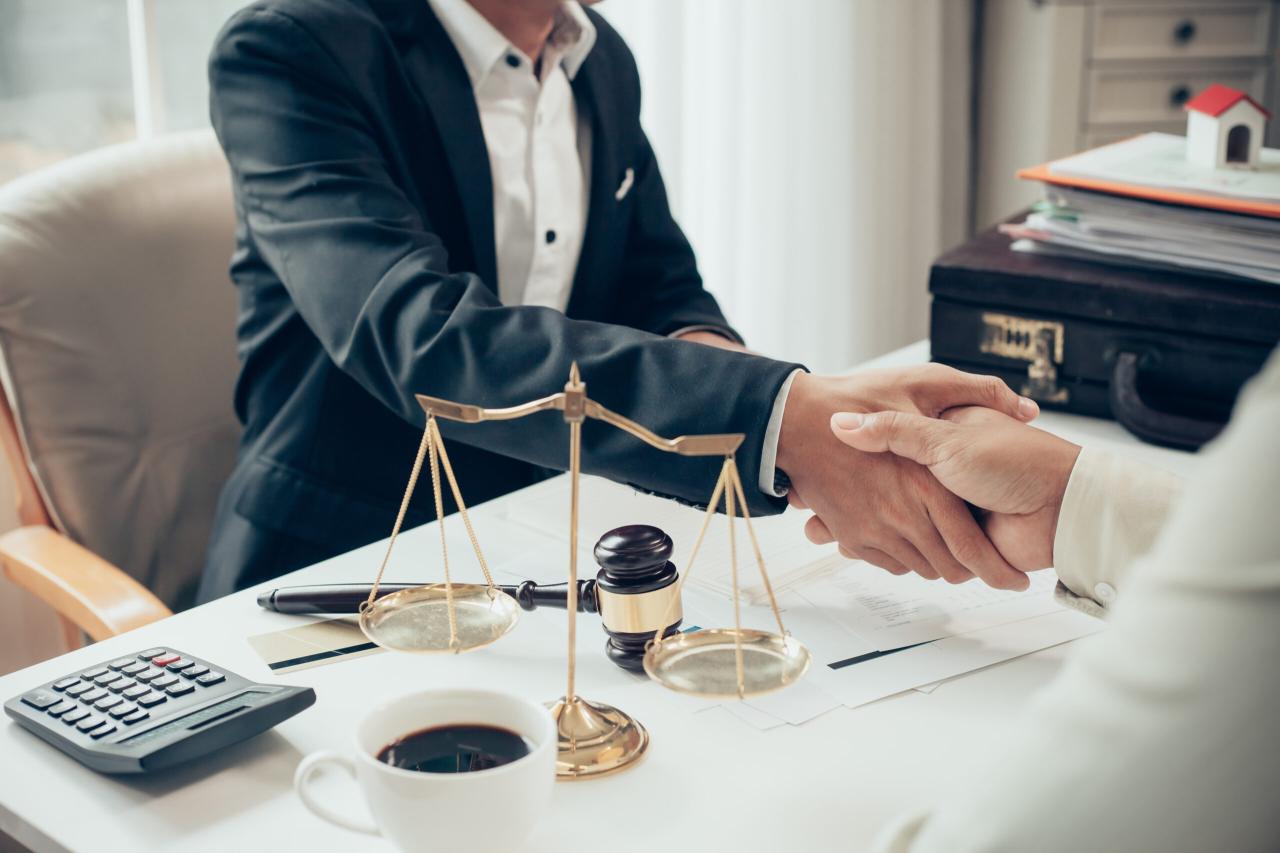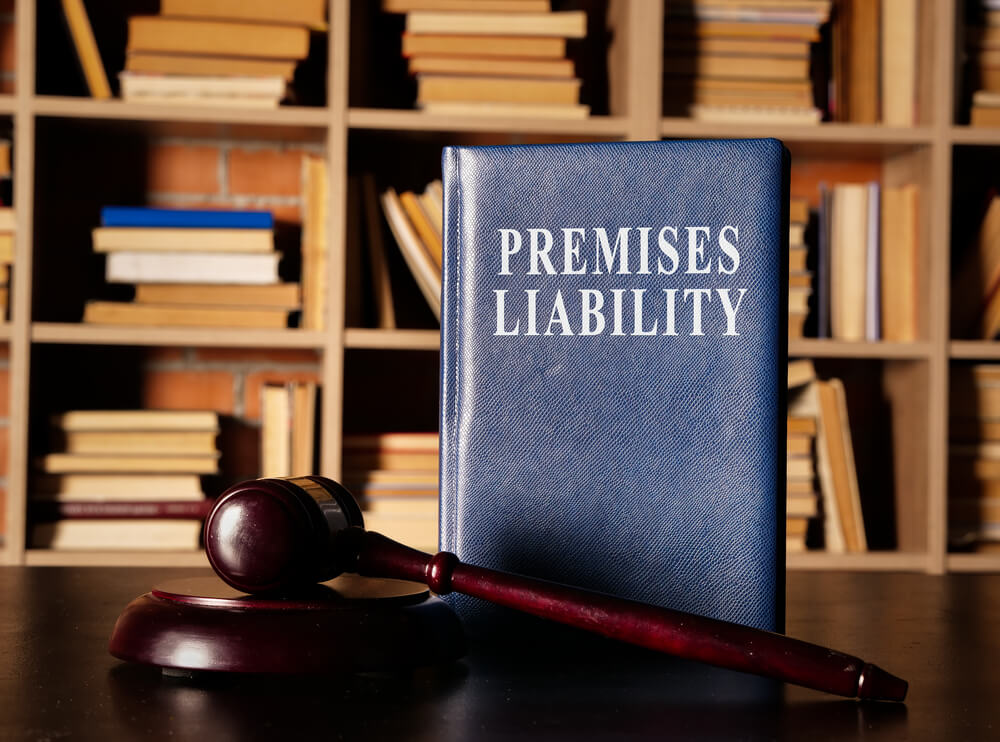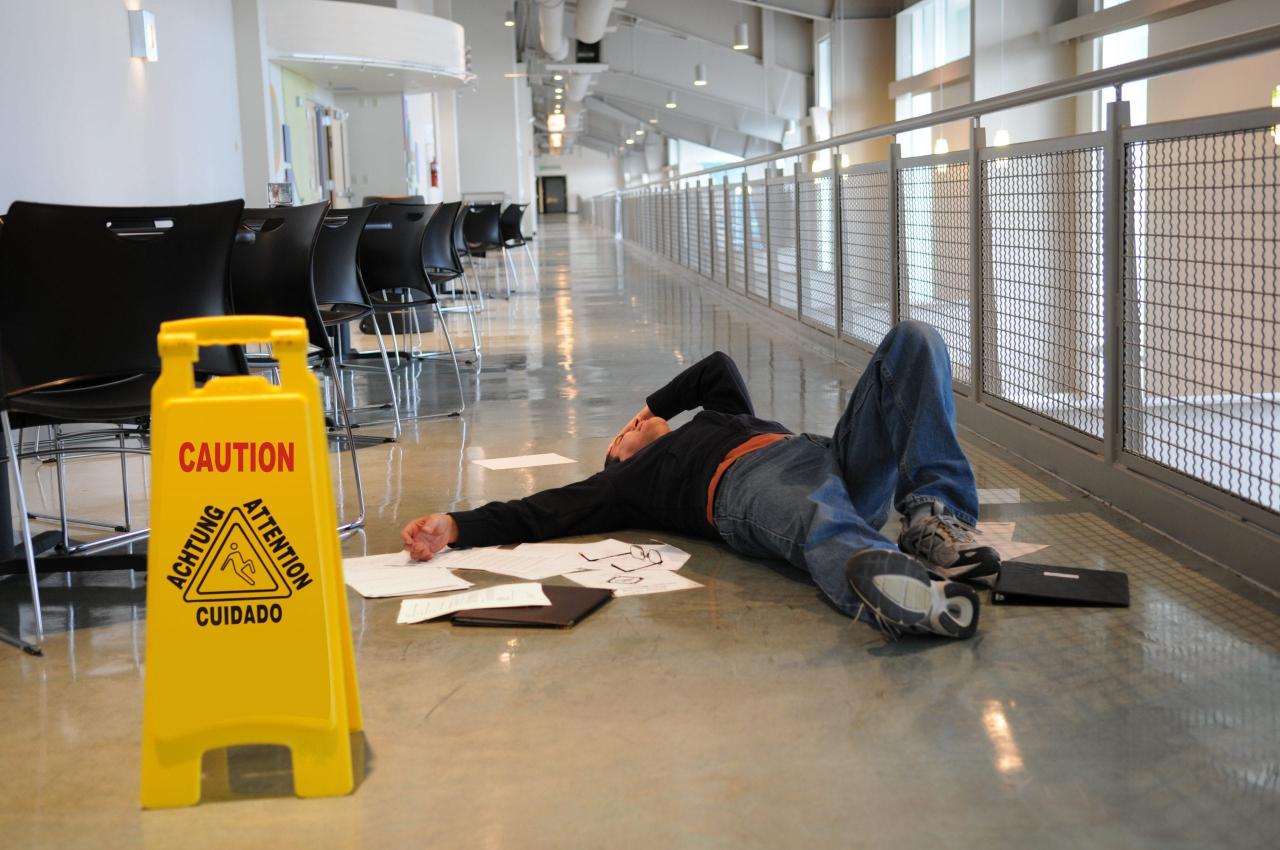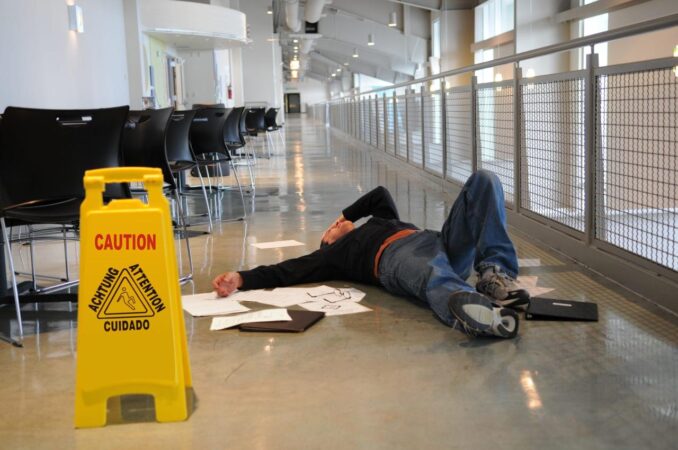
- Definition of Premises Liability
- Types of Premises Liability Cases
- Elements of a Premises Liability Claim
- Defenses to Premises Liability Claims
- Role of a Premises Liability Lawyer
- Selecting a Premises Liability Lawyer
- Statutes of Limitations and Deadlines
- Damages Recoverable in Premises Liability Cases
Definition of Premises Liability
Premises liability refers to the legal responsibility of property owners, occupiers, or landlords to ensure the safety of individuals who enter their premises. This liability extends to any injuries or damages sustained due to unsafe or hazardous conditions on the property.
Scenarios Covered by Premises Liability
Premises liability cases often involve situations where:
- An individual is injured due to a dangerous condition on a property, such as a slippery floor, defective staircase, or exposed electrical wires.
- A visitor is attacked or harmed by a dangerous animal owned by the property owner.
- A person is injured as a result of inadequate security measures, leading to a crime or assault on the premises.
- An individual is injured due to a poorly maintained or defective product on the property, such as a malfunctioning elevator or a broken handrail.
Types of Premises Liability Cases
Premises liability cases cover a wide range of incidents occurring on a property due to the negligence of the property owner or manager. These cases can be broadly categorized into three main types:
Slip-and-Fall Accidents
Slip-and-fall accidents are one of the most common types of premises liability cases. They occur when a person slips, trips, or falls due to a hazardous condition on a property. These conditions may include wet or slippery floors, uneven surfaces, or inadequate lighting.
For example, a customer who slips on a wet floor in a grocery store and sustains injuries may file a premises liability claim against the store owner for failing to maintain a safe environment.
Negligent Security
Negligent security cases arise when a property owner or manager fails to provide adequate security measures, resulting in a crime or assault on the premises. This can include inadequate lighting, lack of security cameras, or insufficient security personnel.
For instance, a tenant who is assaulted in an apartment complex due to the landlord’s failure to install proper lighting or hire security guards may have a premises liability claim against the landlord.
Inadequate Maintenance
Inadequate maintenance cases involve injuries caused by a property owner’s failure to maintain the property in a reasonably safe condition. This may include defective stairs, broken railings, or malfunctioning appliances.
For example, a guest who is injured when a balcony collapses due to the property owner’s failure to inspect and repair it may have a premises liability claim for inadequate maintenance.
Elements of a Premises Liability Claim
To establish a successful premises liability claim, several essential elements must be proven:
– Duty of Care: The property owner or occupier must have owed a duty of care to the injured party. This duty varies depending on the status of the injured party, such as invitee, licensee, or trespasser.
– Breach of Duty: The property owner or occupier must have breached their duty of care by failing to maintain a reasonably safe premises. This includes failing to repair hazards, provide adequate lighting, or warn of potential dangers.
– Causation: The breach of duty must have caused the plaintiff’s injuries. The plaintiff must prove that the property owner or occupier’s negligence directly led to their harm.
– Damages: The plaintiff must have suffered damages as a result of their injuries. These damages can include medical expenses, lost wages, pain and suffering, and emotional distress.
Legal Burden of Proof
In premises liability cases, the plaintiff bears the burden of proof to establish all the elements of their claim. This means they must present evidence to support each element, such as:
– Duty of Care: Proof of the property owner or occupier’s status and the corresponding duty of care owed to the plaintiff.
– Breach of Duty: Evidence of the specific hazards or defects that caused the plaintiff’s injuries, as well as the property owner or occupier’s failure to address them.
– Causation: Medical records and expert testimony to establish the link between the breach of duty and the plaintiff’s injuries.
– Damages: Documentation of medical expenses, lost wages, and other damages incurred as a result of the injuries.
Defenses to Premises Liability Claims

Defendants in premises liability cases often raise various defenses to avoid liability. Understanding these defenses is crucial for both plaintiffs and defendants to effectively navigate the legal process.
Common defenses include:
Open and Obvious Defect Defense
This defense asserts that the plaintiff should have reasonably discovered and avoided the dangerous condition causing their injury. If the defect was apparent and easily observable, the defendant may argue that the plaintiff’s failure to exercise reasonable care contributed to their own injury.
Lack of Notice Defense
The defendant may argue that they had no prior knowledge of the dangerous condition that caused the plaintiff’s injury. This defense is often raised when the defect is not readily apparent or when the defendant did not have a reasonable opportunity to discover and remedy the condition.
Assumption of Risk Defense
This defense alleges that the plaintiff voluntarily assumed the risk of injury by knowingly entering a dangerous area or engaging in a hazardous activity. If the plaintiff was aware of the potential danger and chose to proceed despite the risk, the defendant may assert this defense to limit or bar liability.
Contributory Negligence Defense
The defendant may argue that the plaintiff’s own negligence contributed to their injuries. This defense compares the plaintiff’s conduct to the defendant’s and assesses whether the plaintiff’s actions played a role in causing their own harm. If the plaintiff’s negligence is found to be equal to or greater than the defendant’s, the plaintiff may be barred from recovery.
Role of a Premises Liability Lawyer
Premises liability lawyers play a crucial role in representing victims who have suffered injuries due to the negligence of property owners or occupiers. These lawyers possess specialized knowledge and expertise in premises liability laws, ensuring that victims receive fair compensation for their damages.
Premises liability lawyers provide a wide range of legal services to victims, including:
Legal Representation
- Representing victims in court and negotiating settlements with insurance companies.
- Gathering evidence, interviewing witnesses, and preparing legal documents.
- Advocating for victims’ rights and ensuring they receive fair treatment throughout the legal process.
Case Evaluation
- Assessing the merits of potential premises liability claims.
- Determining the liable parties and identifying potential defenses.
- Advising clients on their legal options and recommending the best course of action.
Settlement Negotiation
- Negotiating fair settlements with insurance companies on behalf of victims.
- Protecting clients from unfair or inadequate settlement offers.
- Ensuring that victims receive full compensation for their injuries and damages.
Trial Preparation
- Preparing cases for trial, including gathering evidence and developing legal arguments.
- Representing victims in court and presenting their case to a jury.
- Fighting for victims’ rights and seeking maximum compensation for their injuries.
Selecting a Premises Liability Lawyer
Selecting the right premises liability lawyer is crucial for maximizing your chances of success in your case. Here’s a guide to help you make an informed decision:
Begin by researching lawyers in your area who specialize in premises liability. Look for attorneys with a proven track record of success in handling similar cases.
Experience and Expertise
- Inquire about the lawyer’s years of experience in premises liability law.
- Review their case history and ask for references from previous clients.
- Consider lawyers who have handled cases involving injuries similar to yours.
Reputation and Reviews
- Check online reviews and testimonials from past clients.
- Contact local bar associations and inquire about any disciplinary actions or complaints against the lawyer.
- Seek recommendations from trusted sources, such as other attorneys or legal professionals.
Communication and Fees
- Choose a lawyer who is responsive, easy to communicate with, and keeps you informed throughout the process.
- Discuss the lawyer’s fees and payment structure upfront to avoid any surprises.
- Inquire about contingency fee arrangements, where the lawyer only gets paid if you win your case.
Personal Connection
- Meet with potential lawyers in person to assess their personality and rapport with you.
- Trust your instincts and select a lawyer who you feel comfortable working with.
- Remember, this lawyer will be representing your interests and fighting for your rights.
Statutes of Limitations and Deadlines

Premises liability claims are subject to statutes of limitations, which impose strict deadlines for filing a lawsuit. Failure to file within the prescribed time frame can result in the loss of your right to seek compensation.
It’s crucial to understand the statute of limitations applicable in your jurisdiction. These time limits vary from state to state, typically ranging from one to ten years from the date of the injury. It’s advisable to consult with a premises liability lawyer to determine the specific time frame that applies to your case.
Importance of Filing Within the Time Frame
Adhering to the statute of limitations is paramount for several reasons:
- Preserves your legal rights: Filing within the time frame ensures that you retain the ability to pursue legal action against the responsible party.
- Protects evidence: As time passes, evidence becomes harder to gather and preserve. Filing promptly allows you to secure important documentation, witness statements, and other evidence that can support your claim.
- Prevents prejudice to the defendant: Delaying the filing of a lawsuit can prejudice the defendant’s ability to prepare a defense. By filing within the time frame, you ensure fairness in the legal process.
Damages Recoverable in Premises Liability Cases

In premises liability cases, individuals who suffer injuries or damages due to the negligence of a property owner or occupier can seek compensation for their losses. The damages recoverable in such cases fall into three main categories: compensatory, punitive, and nominal.
Compensatory damages are intended to reimburse the victim for actual losses incurred as a result of the injury. These damages can include:
- Medical expenses, including hospitalization, doctor’s visits, and rehabilitation
- Lost wages and loss of earning capacity
- Pain and suffering, both physical and emotional
- Loss of enjoyment of life
- Property damage
Punitive damages are awarded in addition to compensatory damages when the defendant’s conduct was particularly egregious or willful and wanton. These damages are intended to punish the defendant and deter similar conduct in the future.
Nominal damages are awarded when the plaintiff has suffered no actual damages but has still proven that the defendant breached a duty of care. These damages are typically small and are awarded as a symbolic gesture.





